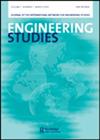Engineering Laboratory Experiments – a Typology
IF 1.3
3区 工程技术
Q2 EDUCATION, SCIENTIFIC DISCIPLINES
引用次数: 1
Abstract
With the introduction of large commercial industrial laboratories at the end of the nineteenth century, many types of experiments were institutionalized that do not aim at testing hypotheses. This paper builds a typology of experiments in techno-science, by analysing more than two hundred and fifty real-life technical projects. This resulted in four testing types (tests of hypotheses, of designs, of means-end knowledge, and of models or software), three determining types (developing working principles, preferred actions, and determining values of variables or relationships between variables) and one trial-and-error type of pure exploration. The typology is developed by working back and forth between thick descriptions of the experiments including their goals, and the development of six criteria of differentiation, to wit: determining versus testing; measurement scales of (in)dependent variables; intrinsic versus instrumental value of the outcomes; proximate function of the outcome; distant role of the outcome in the embedded project; the descriptive or normative character of the proximate or distant outcomes. The typology opens up inspiring methodological and philosophical research questions.工程实验室实验-类型学
随着19世纪末大型商业工业实验室的引入,许多类型的实验都制度化了,它们的目的不是为了检验假设。本文通过分析250多个现实生活中的技术项目,构建了技术科学实验的类型学。这导致了四种测试类型(假设测试、设计测试、目的知识测试和模型或软件测试)、三种确定类型(开发工作原则、首选行为和确定变量或变量之间关系的值)和一种试错类型的纯探索。类型学是通过在包括实验目标在内的大量实验描述和六个区分标准的发展之间来回工作而发展起来的,即:决定与测试;因变量(in)的测量尺度;结果的内在价值和工具价值;结果的近似函数;结果在嵌入式项目中的远距离作用;结果:近期或远期结果的描述性或规范性特征类型学开启了鼓舞人心的方法论和哲学研究问题。
本文章由计算机程序翻译,如有差异,请以英文原文为准。
求助全文
约1分钟内获得全文
求助全文
来源期刊

Engineering Studies
ENGINEERING, MULTIDISCIPLINARY-HISTORY & PHILOSOPHY OF SCIENCE
CiteScore
3.60
自引率
17.60%
发文量
12
审稿时长
>12 weeks
期刊介绍:
Engineering Studies is an interdisciplinary, international journal devoted to the scholarly study of engineers and engineering. Its mission is threefold:
1. to advance critical analysis in historical, social, cultural, political, philosophical, rhetorical, and organizational studies of engineers and engineering;
2. to help build and serve diverse communities of researchers interested in engineering studies;
3. to link scholarly work in engineering studies with broader discussions and debates about engineering education, research, practice, policy, and representation.
The editors of Engineering Studies are interested in papers that consider the following questions:
• How does this paper enhance critical understanding of engineers or engineering?
• What are the relationships among the technical and nontechnical dimensions of engineering practices, and how do these relationships change over time and from place to place?
 求助内容:
求助内容: 应助结果提醒方式:
应助结果提醒方式:


